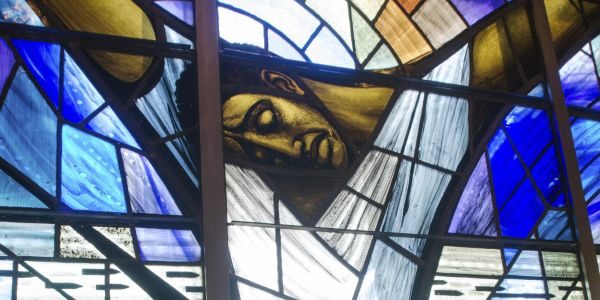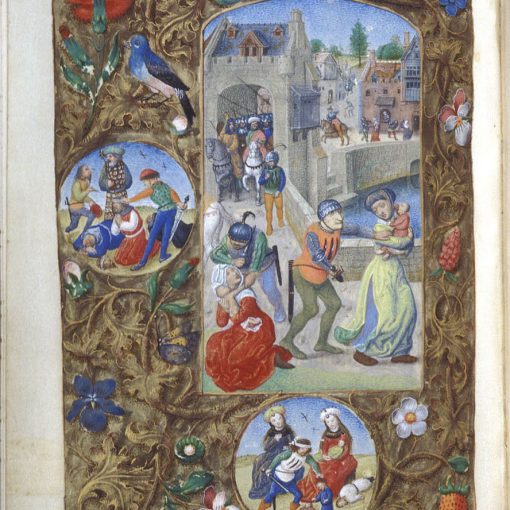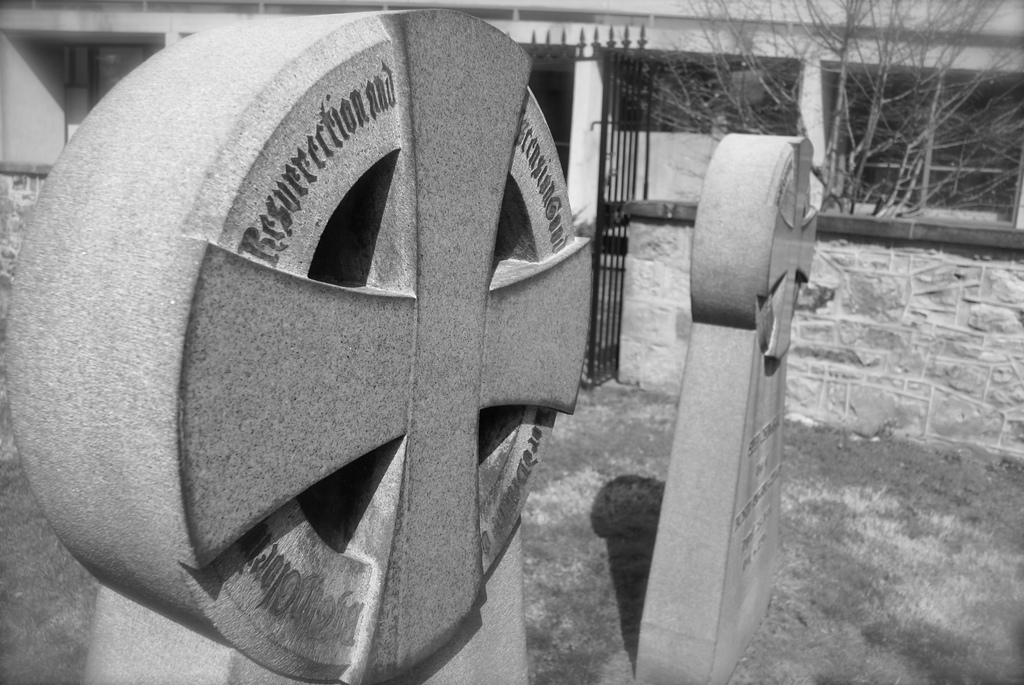Proper 19 (24) (September 11, 2016), Trinity Church, Tyrone, PA
Readings:
- Exodus 32:7-14
- Psalm 51:1-10
- 1 Timothy 1:12-17
- Luke 15:1-10
Today is the 15th anniversary of the attacks on New York City and Washington, DC. Thousands lost their lives that day and thousands more have died in the conflicts since. Students in college today have never not known a time when we were not in a war against terror. Compared with the rest of the world, our American children live in a society that is largely affluent, if struggling economically, and secure. The most common cause of death in teens sadly took the life of Penn State student Byron Markle this past Friday: car accident. Death has become ever more present to this generation, the Millennials, but it has never been far from us. My generation remembers airline hijackings, the Cold War, and “duck and cover” exercises to help us cope with the ever present fear of nuclear annihilation. The generations before us knew the very Hot Wars of Vietnam, Korea, and World War Two.
Jesus told his disciples, “you will hear of wars and rumors of wars; see that you are not alarmed” (Matt. 24:6). See that you are not alarmed because this will happen, it has to happen. Why? Because it is our fallen human nature. God created us with great capacity to love and serve others, to care and create, but we too often selfishly chose to hate and destroy, the distorted mirror of what we were created for.
Today’s psalm, Psalm 51, speaks to this nature. It is the psalm we recite together on Ash Wednesday in our penitence, as we ask God for forgiveness. “For I know my transgressions, and my sin is ever before me.” The ancient editor describes this psalm as having been written by David after the prophet Nathan forced him to realize that his dalliance with Bathsheba was not just a dalliance, it was a sin. The Old Testament reading for today refers to the sin of a nation, a nation saved by God from slavery who nonetheless still sought to create gods for themselves.
We may not always recognize it, the language seems archaic, the images and phrases perhaps too familiar and distant at the same time to have any impact, but this is still the world we live in. We satisfy our own desires like David and justify them to ourselves. We are faced with what seems like insurmountable obstacles in our own “wilderness” and instead of relying in faith upon God’s provision we seek “to make our own good fortune.” “God helps those who help themselves” sounds like a sound biblical statement, but it cannot be found in the Bible and is, in fact, fundamentally contradictory to the principals of the faith. The reality, our own reality just as much as it was Moses and David’s, is that we try to take control of our lives and this world based upon our own selfish wishes and the result is suffering, fear, and grief.
But Moses and David recognized their sin, acknowledged what they and their people had done and confessed, asking God to cleanse, forgive, and renew them. That is the message and power not just of today’s readings, but the Gospel itself.
Ps. 51:7 Purge me with hyssop, and I shall be clean;
wash me, and I shall be whiter than snow.
8 Let me hear joy and gladness;
let the bones that you have crushed rejoice.
9 Hide your face from my sins,
and blot out all my iniquities.
Exod. 32:12b [Moses implored God,] “Turn from your fierce wrath; change your mind and do not bring disaster on your people.”
The point of the parables in today’s Gospel, as Jesus himself tells us, is that when we repent, when we seek to return to God in humility, placing ourselves in his merciful hands, he will not stop until we are safely home and secure as his own child. “Just so, I tell you, there will be more joy in heaven over one sinner who repents than over ninety-nine righteous persons who need no repentance.” (Luke 15:7)
Unlike the sheep or the coin in the parables, we have been made in the image of God and that means, among other things, that we have the freedom to do all these hurtful things, hurtful to others and to ourselves, but we also have the freedom to repent. God has loved us so much that he allows us to make such choices, to acknowledge our sin and ask God to “create in me a clean heart and put a new and right spirit within me.” But we cannot save ourselves, salvation is the work of God and our savior Christ.
This morning I read a long and harrowing story about the search to find the identity of the man in the iconic photo from 9/11, one of hundreds who chose to jump from the towers. The author, who at no other point in this story acknowledged the challenge to faith that that day and those actions represented, made a poignant and theologically sound observation.
Is Jonathan Briley the Falling Man? He might be. But maybe he didn’t jump from the window as a betrayal of love or because he lost hope. Maybe he jumped to fulfill the terms of a miracle. Maybe he jumped to come home to his family. Maybe he didn’t jump at all, because no one can jump into the arms of God.
Oh, no. You have to fall.
We have to fall into the arms of God. There is no other way. We have to give up ourselves and our desires, our expectations of what we “deserve” and what we want, confessing our own selfishness, so that we can accept the loving and saving embrace of our God.
Amen ✠





